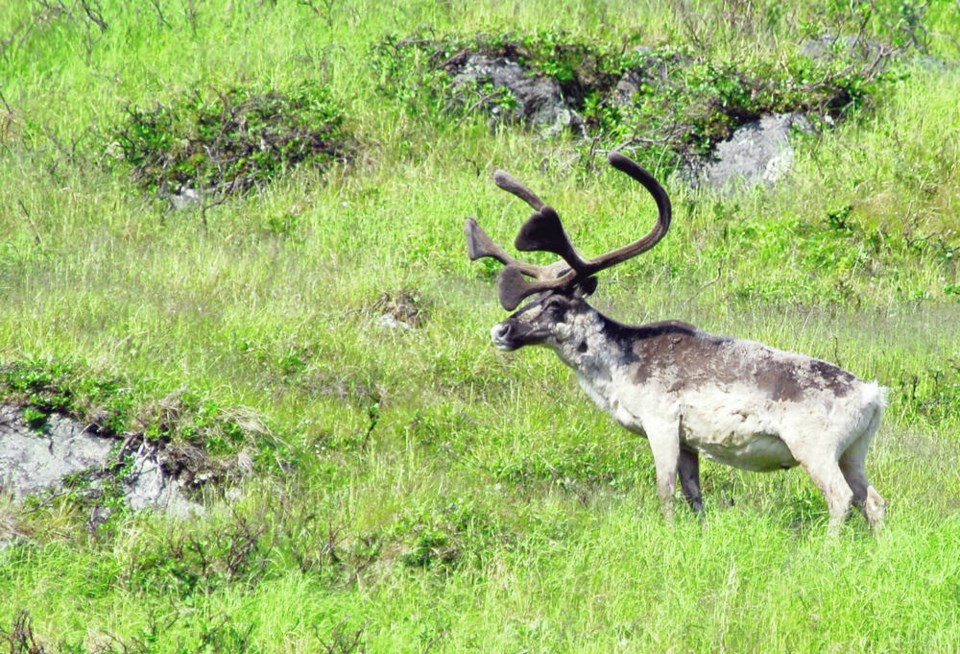There was a time when B.C. was a global leader in fish, wildlife and habitat conservation, said Jesse Zeman of the B.C. Wildlife Federation in a May 10 news release. But now it is “a landscape which can be characterized as at risk, endangered and extirpated,” he said. (Extirpated refers to local extinction; a species may not be extinct overall, but has become extinct in a particular region where once it was found.) Moreover, this has happened in just one generation.
The news release announced the creation of the B.C. Fish, Wildlife, and Habitat Coalition, which brings together 25 organisations from widely differing sectors: environmental and conservation organizations, hunting and angling guides, wildlife viewing, ecotourism, naturalists, hunters, anglers and trappers.
What unites this somewhat disparate group is “growing concern over the province’s failure — over successive governments — to adequately deal with a mounting crisis of biodiversity loss and cumulative impacts on ecosystem health,” says Tim Burkhart of the Yellowstone to Yukon Conservation Initiative.
It is nothing short of a tragedy that it has come to this. And how has this come to pass? Because successive governments have valued the economy over nature, and thus over the wellbeing of future generations, not to mention all the species with whom we share this still-beautiful but scarred land. The examples are all around us and are coming thick and fast.
For example, a May 2021 study looked at the decline of caribou across Canada and found that it is “habitat alteration from forest cutting” that is at the root of this decline. The research shows the complexity of the ecological processes at play, a complexity too often ignored in the more simplistic decision-making used to justify economic benefit.
In this case, cutting down the forest leads to an increase in sunlight and a flourishing of deciduous understorey. That, in turn, favours moose and deer that do well on this food, which, in turn, leads to an increase in predators such as wolves — and the caribou suffer.
It’s not just forestry that is to blame. A December 2020 report from the Corporate Mapping Project, jointly led by the University of Victoria, Canadian Centre for Policy Alternatives and the Parkland Institute, notes that scientists have identified coal mining as a key driver of caribou extirpation — specifically the mountain caribou in northeastern B.C.
But the focus of this study is the absurd and false economic justification for the mining. The authors found “approval of these mines was based on unreasonable benefit expectations … little of the economic gain promised actually materializes, and the scant benefit that is generated arrives years later than promised.”
So not only are the caribou becoming locally extinct, but the supposed economic and social benefits that might — in some people’s minds — justify this ecological abuse are missing. In the end, it’s all for nothing. Indeed, “not only do the costs of mining activity in northeastern B.C. outweigh the benefits, but the public helped to fund extinction of caribou by subsidizing exploration and development.”
A third recent example comes from the B.C. Forest Practices Board, which has just released its report of a three-year long investigation into forest management in the Nahmint Valley, near Port Alberni. This area was designated as “a special management zone in a high biodiversity landscape unit,” but the board found that the responsible government agencies failed in their duty to protect biodiversity and old-growth forest. Moreover, it found the legislation did not give the Compliance and Enforcement Branch the authority needed to investigate and take corrective action.
Tragically, these are just a microscosm of the appalling record of successive B.C. governments that have ignored the ethical and legal obligations to protect “super natural B.C.” in order to extract maximum short-term financial and political gain.
We all need to get behind the new B.C. Fish, Wildlife and Habitat Coalition in its demand for “a commitment from the province to invest in healthy landscapes, waters, and fish and wildlife stewardship, in partnership with First Nations and communities.”
And we must insist the government put a stop to inflated estimates of short-term economic gain that sacrifice the wellbeing of future generations and other species.
Dr. Trevor Hancock is a retired professor and senior scholar at the University of Victoria’s School of Public Health and Social Policy.



